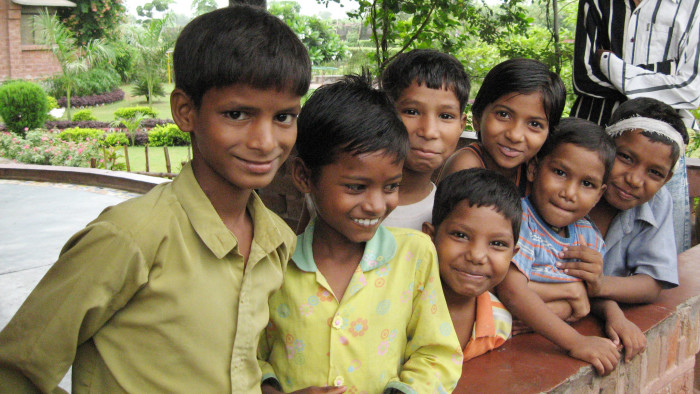FT MBA Challenge 2013 – consulting remotely

Simply sign up to the Business education myFT Digest -- delivered directly to your inbox.
The Financial Times has partnered with the Global Fund for Children for its second MBA Challenge, in which nine teams of business school students will each advise a different charity on its long-term strategy.
The second stage of the challenge involved more than 50 students consulting remotely, using email and Skype with their non-profit partner organisations. These are located in countries such as Bulgaria, Colombia, Haiti, India, Laos, Senegal and Tanzania.
What is the first step?
Ravi Gadam, an MBA student at UCLA Anderson School of Management who is one of a team working with Karm Marg, a children’s home in New Delhi, says it is important
“to put away any preconceived notions and start from a clean slate”.
For Ajay Palaparty, a masters in management student at the London School of Economics on the same team as Mr Gadam, it was essential to tap into the range in experience of his peers. “The diversity encourages open discussion and debate, key to any successful team effort in creating comprehensive solutions,” he says.
How important are cultural issues?
Andres Cossio, an executive MBA student at Vlerick Business School in Ghent, working with Monduli Pastoralist Development Initiative, an education charity in Tanzania, found cultural context was even more critical than he had expected. “Sometimes it’s difficult to remember that the type of resources and tools available to them are completely different than those available to other organisations in other places in the world,” he says. Managing this difference requires focusing on how to collaborate in the most efficient way possible. This means “identifying the strengths and values that will keep the community working toward a common goal.”
Elizabeth Shavelson, another MBA student at UCLA Anderson working with Mr Gadam and Mr Palaparty, agrees that it is difficult to fully comprehend the scale of the differences from the other side of the world. “I entered this challenge assuming that my experience working with homeless children in Los Angeles’s skid row area would somehow lend itself to my understanding of Karm Marg,” she says. “However, it quickly became apparent that the realities faced by street children in New Delhi necessitate different solutions.”
How does a non-profit organisation differ from a commercial company?
Joe Burak, a graduate of George Washington University, on the same team as Mr Cossio, found there was a huge gulf. “You get a real sense of the core purpose and how elements need to be carefully balanced,” he says.
This is the second in a series on the MBA Challenge 2013. Find out more at www.ft.com/mba-challenge2013
Comments